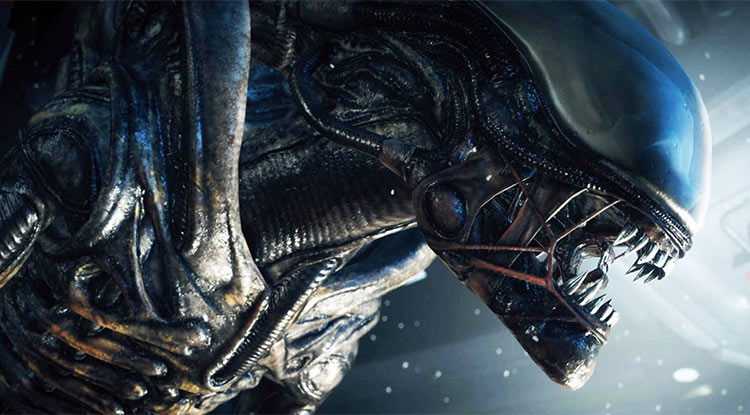“Why? Why are the innocent punished? Why the sacrifice? Why the pain? There aren’t any promises. Nothing certain. Only that some get called, some get saved. She won’t ever know the hardship and grief for those of us left behind. We commit these bodies to the void with a glad heart. For within each seed, there is a promise of a flower, and within each death, no matter how small, there’s always a new life. A new beginning. Amen.” – Dillon (Charles S. Dutton)
Alright, this is rumor control.
Here are the facts
Of the Alien anthology/tetralogy/sextet (if you want to count the crossover films), Alien 3 is the film with the worst rap. Yes, Alien Resurrection is a mess of eccentric direction and an uneven script. Alien Vs. Predator is a neutered, slipshod novelty. Aliens Vs. Predator: Requiem has apologist thanks to copious creature brawling and gore set pieces, but sports technically terrible direction and a non-existent script.
Yet Alien 3 is looked at as the biggest disappointment of the franchise by fans and filmmakers alike thanks to two important factors. First, it is the follow-up to what is arguably the most successful sequel of all time. Second, it carries with it a troubled, highly publicized production history that has bred a “what could have been” and “what should have been” attitude toward the film.
Screenwriters David Twohy (Pitch Black), Eric Red (Near Dark), John Fasano (Black Roses), Vincent Ward (What Dreams May Come), and William Gibson (Johnny Mnemonic and the cyberpunk novel Neuromancer) all took a crack at various drafts of the screenplay. Premises included Alien air-borne viruses that mutated humans into super-Xenomorphs, an orbiting farm community besieged by a Xenomorph outbreak, and a desolate space prison host to human-Alien experimentation. The latter idea was taken and tweaked by Vincent Ward to be set on an a wood sheathed prison planet occupied by expatriate, anti-technology monks.
When Ward left, Larry Ferguson, David Giler, and Walter Hill refocused the project, adapting the story to their own distinctive style while dropping the medieval overtones in favor of apocalyptic Christian ones. Sigourney Weaver agreed to shave her head for the part and signed on to reprise her signature role as Ripley for a record setting paycheck ($5 million of the escalating $45 million budget). In a move that would, um, alienate fans for decades to come, fan-favorite character played by Michael Biehn and Carrie Henn were killed off-screen and written out of the franchise’s future permanently. While Hill was in line to direct, he rescinded the throne when Fox pushed up-and-coming commercial/music video director David Fincher into the position less than two weeks before shooting was set to begin.
And that’s when things got really interesting. Reports of tension on the set between Fincher, Gill, Hill, and Fox executives ran rampant. Re-shoots ensued, changing both the Xenomorph’s origins and the ending. Fincher himself disowned the project thanks to interference – walking out on Alien 3 before editing even began. The studio, Hill, and Giler would have their way with the film, and on May 22, 1992, filmgoers flooded cinemas only to leave outraged.
Keep in mind, an early teaser trailer for the film (above) featured the tagline, “In 1979, we discovered in space, no one can hear you scream. In 1992, we will discover, on Earth, everyone can hear you scream.” This accompanied an iconic shot of the facehugger egg erupting over Earth.
So, from the very beginning of the film’s marketing campaign, before shooting on Alien 3 had even begun, audiences were set up to be disappointed upon discovering the film is not set on Earth and the implication of a full-scale Xenomorph invasion was nothing more than an early idea for the film. (Weirdly enough, no screenplays featured an Earth invasion in the purest sense, though David Twohy’s draft did feature a penal colony/Xenomorph station orbiting as a threat over our planet.)
What audiences got was no Earth invasion, no Hicks, no Newt, no gunplay, no big explosions, no march heavy score, and no big action scenes. Instead, they were treated to a rough re-working of the original Alien as a Christ-like parable.

Read about the passage from one Alien film to the next after the jump…










Stay Connected